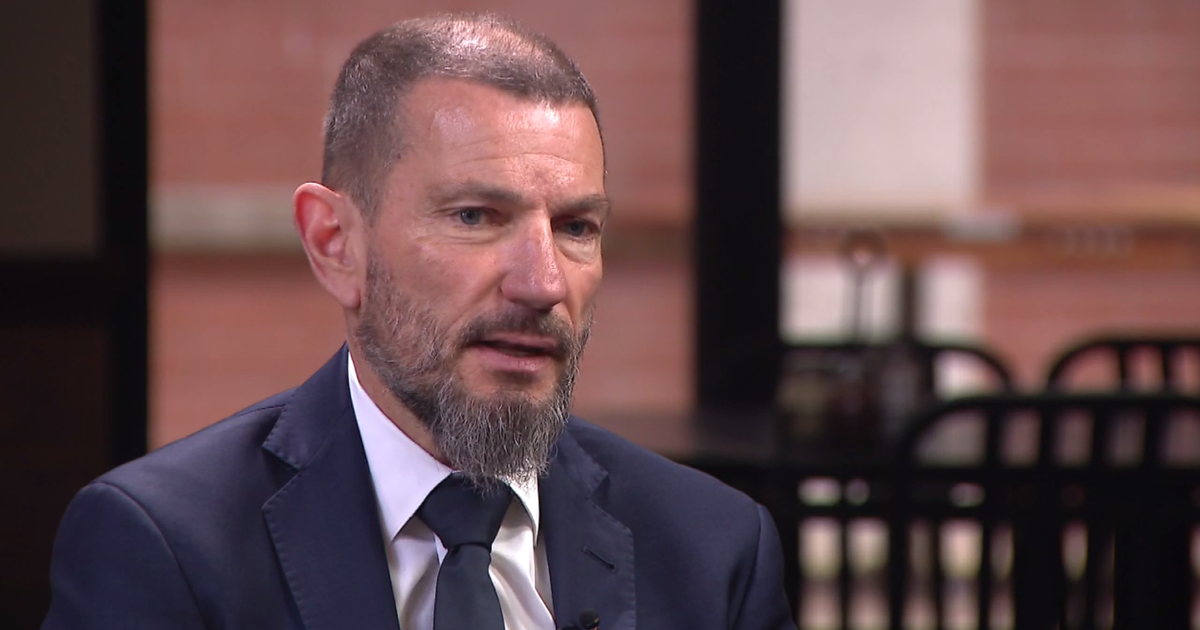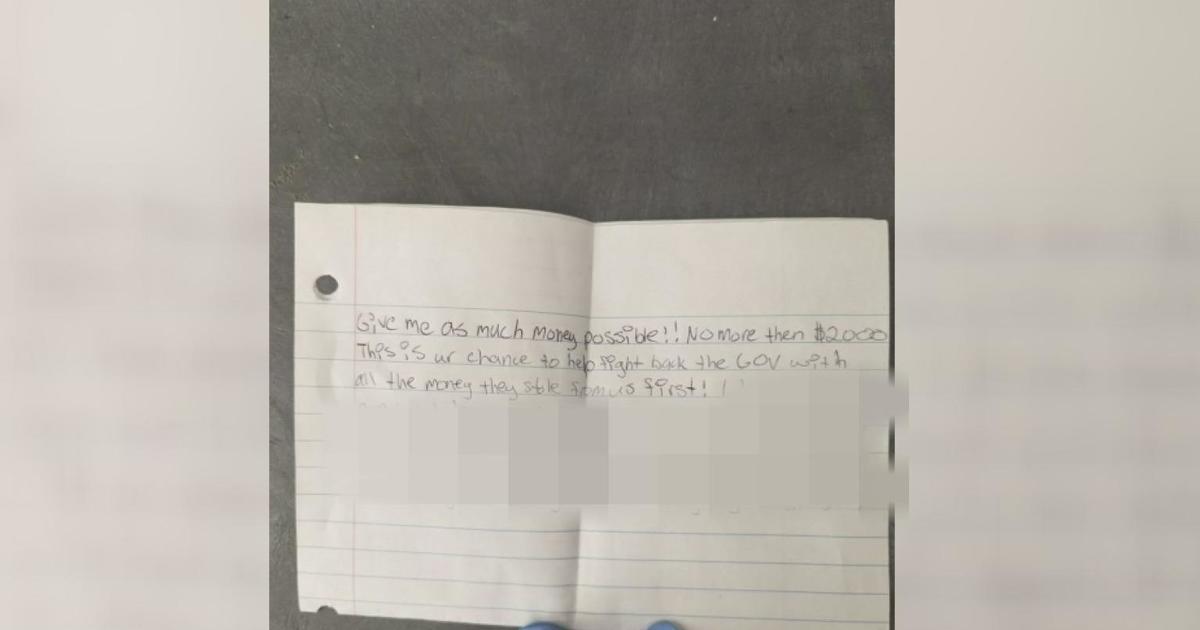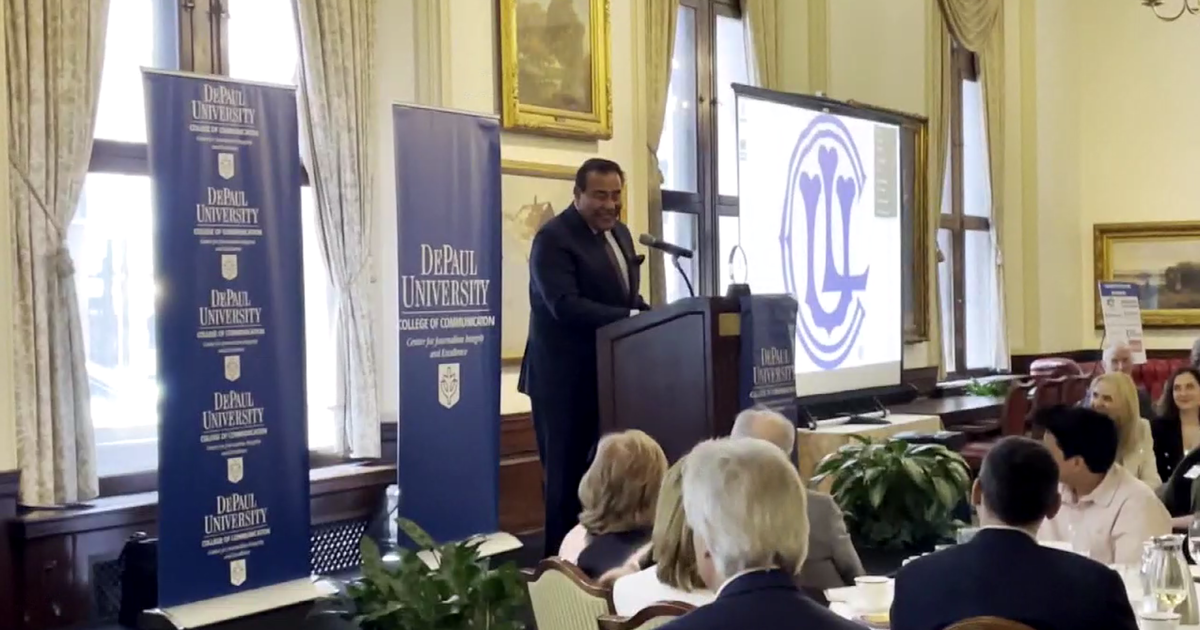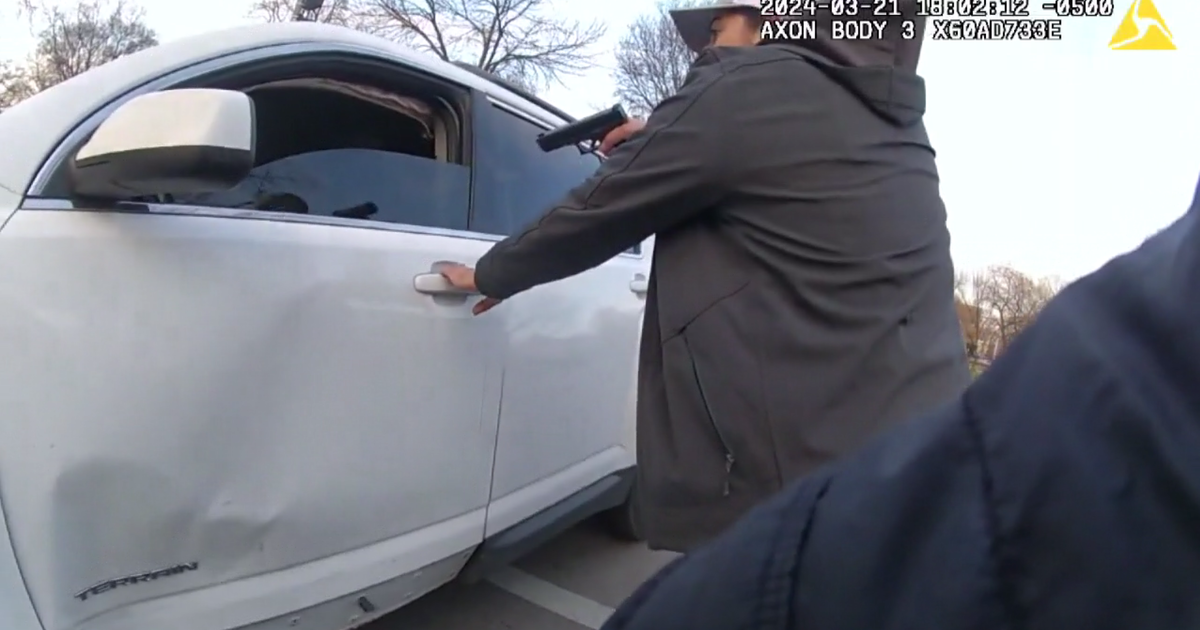Mayoral Debate Ends With Preckwinkle And Lighfoot Trading Barbs
CHICAGO (CBS) -- Facing off against each other for the final televised debate before the mayoral runoff election last week, Lori Lightfoot and Toni Preckwinkle ended the debate on a sour note, with Lighfoot condemning Preckwinkle for again criticizing her career as a corporate lawyer, and Preckwinkle calling Lighfoot a hypocrite for complaining about the tenor of the race.
Both candidates were given the chance to ask each other a question at the end of the debate. While Lightfoot asked Preckwinkle what she would do to "build hope" for young people in Chicago if she were elected mayor, Preckwinkle asked Lightfoot what she regrets most in her professional life.
"You are a corporate lawyer, and it's something that you've said you are proud of. However, you have defended corporations accused of age and race discrimination," she said.
"Well, there she goes again," Lighftoot shot back.
"You've made a hallmark of your campaign since February 26th to denigrate me, to challenge me, to portray me as something other than I am. Our children are watching. You talk about your grandchildren all the time, and I have to explain to my daughter what it means when adults lie. I have to explain to my daughter when adults are bullies, and I have to explain to my daughter what it means when an adult says something that's not true just to try to score political points," Lightfoot said.
Preckwinkle called Lightfoot's response hypocritical.
"This is a person who is complaining now about the tenor of the campaign, but who in the first debate called me a liar, and has repeatedly said that I'm a cockroach. So I think it's a little bit hypocritical of her to complain now about the tenor of the campaign," she said.
The candidates spent a great deal of the debate discussing the city's embattled Chicago Police Department, which finally this month officially came under the scrutiny of a long-awaited consent decree governing sweeping changes to CPD policies and practices.
Both candidates were asked what changes they would demand in the city's contract with rank-and-file police officers to help improve the department.
Preckwinkle declined to discuss any specific contract demands, "I think it's a mistake to negotiate your contract in public, rather than with your workers first."
Instead, Preckwinkle focused on changing the leadership of the department. In the past, Preckwinkle has vowed to fire Police Supt. Eddie Johnson, accusing him of denying a code of silence within the department.
"The police superintendent has to acknowledge that there's a code of silence in the police department that hampers our ability to hold officers accountable for their bad acts, and encourages other officers to cover up for them," she said.
Lightfoot, on the other hand, said "there's no secrets about what needs to change" in the police contract.
"We can't allow disciplinary records to be destroyed, we have to allow for anonymous complaints, we can't stop investigations if a complainant hasn't filed an affidavit, and we have to be able to use past disciplinary records to determine whether there's a pattern of conduct on the part of an officer," she said.
The candidates also again weighed in on the decision by Cook County prosecutors to drop all charges against "Empire" actor Jussie Smollett, who had been accused of orchestrating a hoax hate crime against himself. Police Supt. Eddie Johnson and Mayor Rahm Emanuel both have attacked the decision, insisting the case should have gone to trial, given prosecutors had enough evidence to convince a grand jury to indict Smollett on 16 counts of disorderly conduct.
Lighftoot and Preckwinkle also were asked how they would repair the relationship between the Chicago Police Department and the Cook County State's Attorney's office after prosecutors dropped charges in the Jussie Smollett case, without first notifying police.
Lightfoot denied that the situation was a crisis for the mayor.
"This is an incident that was clearly unfortunate. There is a symbiotic relationship between the law enforcement and the prosecutor's office. Sometimes that works, sometimes it doesn't, and we obviously have to make sure that we understand exactly what happened," she said.
Lighftoot said it would have been better if prosecutors had given the police advance notice of their decision, and the state's attorney's office should provide a more thorough explanation of why they dropped the charges.
"There's got to be more fulsome information from the states attorney's office about the how, who, what, and when that led to this seemingly strange situation where they say the evidence was fine, that they believe that he's guilty, and yet they gave him essentially a pass," she said.
Preckwinkle said she has experience bringing people together as the Cook County Board President.
"You have to bring not just the state's attorney and the superintendent of police, but all of the actors in the criminal justice arena together to try to address this challenge. And I think it's not an insurmountable problem," she said. "I think when a little time has passed, and tempers have cooled, you need to get people together to understand that they have the same interests. That is a just criminal justice system."
Both candidates also were asked how they would end the inequity in policing in Chicago, noting the amount of resources dedicated to the Smollett case, when the city's overall murder clearance rate is at 12 percent, and there have been questions raised about a possible serial killer on the loose.
"We obviously have to do better," Lightfoot said, calling the police department's clearance rate in murder cases "unacceptable."
Lightfoot said detectives have to build relationships on the ground with the community before crime happens, so people know who they are when they investigate a crime.
Preckwinkle echoed the sentiment that the city needs to invest more in community policing.
"The way crimes get solved is that officers get cooperation and collaboration from community members," she said.
During the hourlong debate, the candidates also weighed in on a string of incidents involving Chicago police officers raiding the wrong homes, most recently when 17 officers broke into a South Side home during a 4-year-old boy's birthday party, pointing guns at children and terrifying the innocent family. It turned out the person they were looking for had not lived in the building for five years.
"The fact that police officers are breaking into the wrong homes, and we've seen across the country that that can lead to deadly consequences, is totally unacceptable," Lightfoot said. "That's something that the superintendent has to own, and take responsibility for."
If police use faulty evidence to obtain a search warrant, or make a mistake and go to the wrong home, Lightfoot said it's not enough to simply apologize.
"That's also an issue of supervision, and all up the chain, we can't continue to have that happen. It's not good enough to say we're sorry," she said. "That kid is forever going to be traumatized by that experience, so we have to do better. We have to make sure that we learn from the lessons, and that supervisors and the line officers are held accountable in a way that they seemingly haven't been."
Preckwinkle said she would make sure the department has a superintendent who acknowledges mistakes, and addresses them.
"That had to do with the code of silence which plagues our police department, and the racism within the police department," she said. "We have to have a police department that acknowledges mistakes if we're going to have confidence. In any human enterprise, mistakes are going to be made. You have to acknowledge them and address them, and you cannot address them unless you acknowledge them. In many of our black and brown communities, there's a feeling that the police are an occupying force, and not protecting them."
While the candidates agree on a great deal of issues at City Hall, they did voice some key differences during the debate.
Lightfoot has pledged to eliminate the practice of aldermanic privilege, which gives aldermen the final say on development projects in their ward, regardless of the scope of the project.
"It's corrosive and corrupting," she said. "The City Council is not reforming itself, and it will not do that without strong leadership from the mayor."
She also called for term limits for committee chairmanships.
Preckwinkle, a former alderman, did not outright oppose the practice of aldermanic privilege, but focused instead on a collaborative approach between the mayor's office and the City Council.
"It's important that the mayor have a vision for leading the city forward, and that that mayor secures support in the council. You have to have a vision, but you also have to work collaboratively with the City Council to make that vision work. It takes 26 votes to pass measures, and I think that's important to remember. You don't govern by fiat, you govern in collaboration with the legislative body," she said.



